SUSTAINABILITY & EFFICIENCY
Working within a circular economy
A circular economy is one which recycles resources and minimises waste. Moving towards circular economy systems is considered vital for long term sustainability.
Our business model has used circular economy principles for over a decade, and we continue to bridge any gaps. For example, our energy needs – both for electricity and heating – are supplied from our own biodigesters. Our own digestate fertilises our fields – and some of our partner farms. Even our CO2 is cleaned and supplied to the food industry
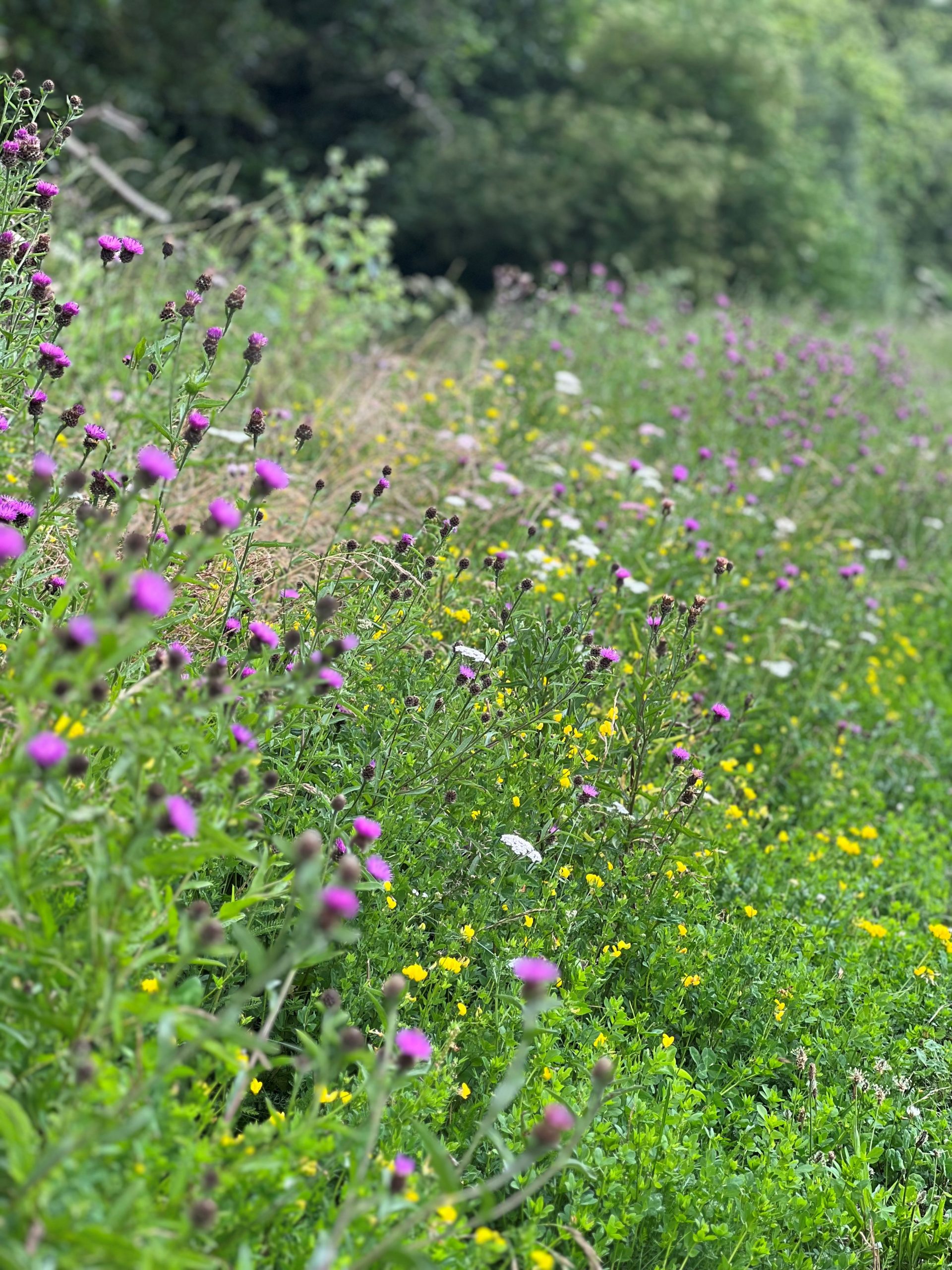
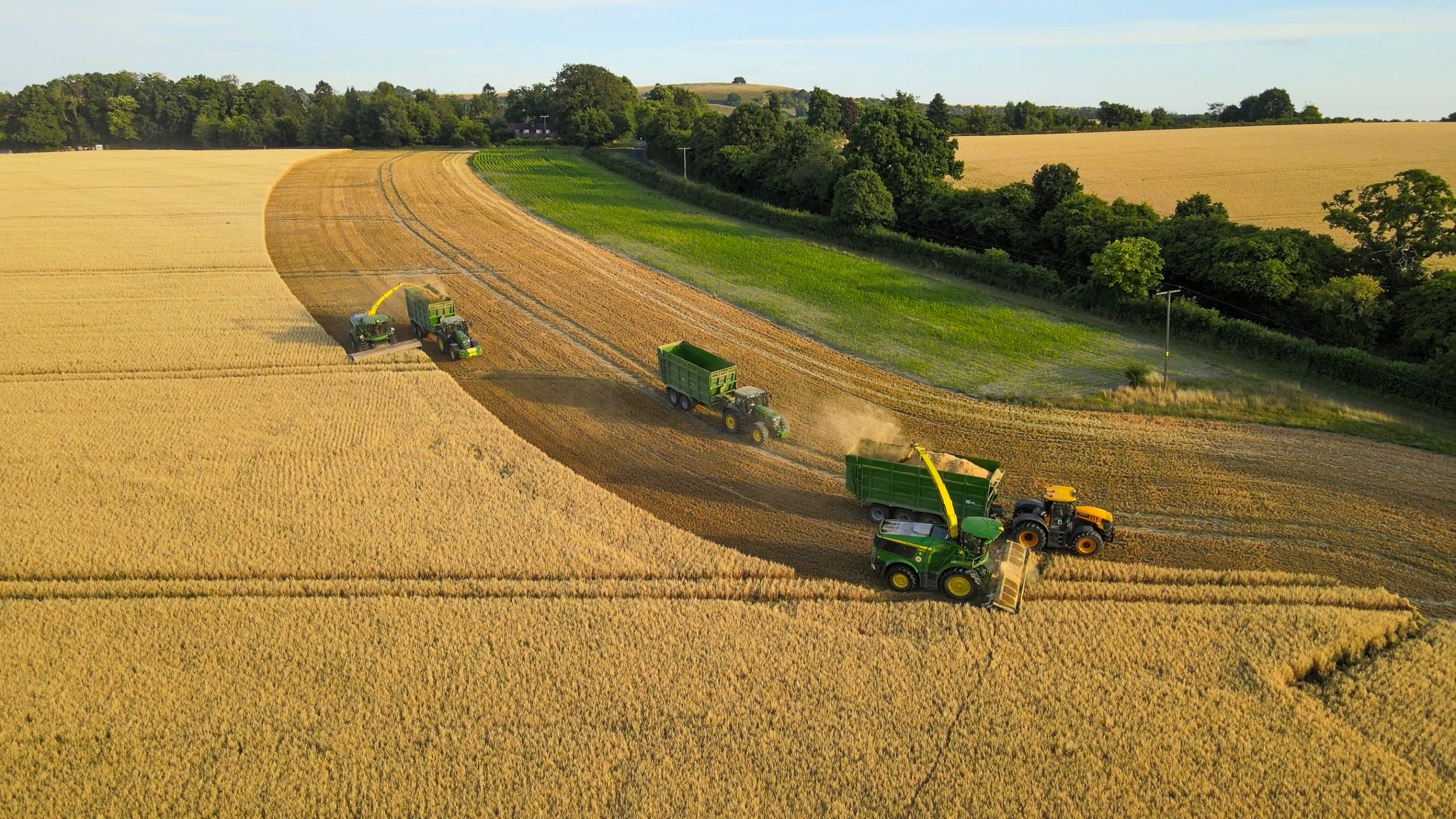
Precision Farming
We invest in cutting edge precision farming equipment which provides significant benefits. We use satellite controlled (RTK) systems on our vehicles which allow us to control the steering. By using this technology, we can match each field pass to the previous one with accuracy of 1-2cm, therefore reducing the number of passes required by 30% during crop establishment.
In addition, the technology we use allows boundary and field mapping of all our farmed fields. During the harvest the yield data is recorded, analysed and stored. The data can then be applied to map future farming operations to ensure that every area of a field is achieving a profitable outcome. This includes soil improvers and manufactured fertilisers to ensure that they are distributed effectively, giving the required amount for plant uptake and, therefore, reducing waste.
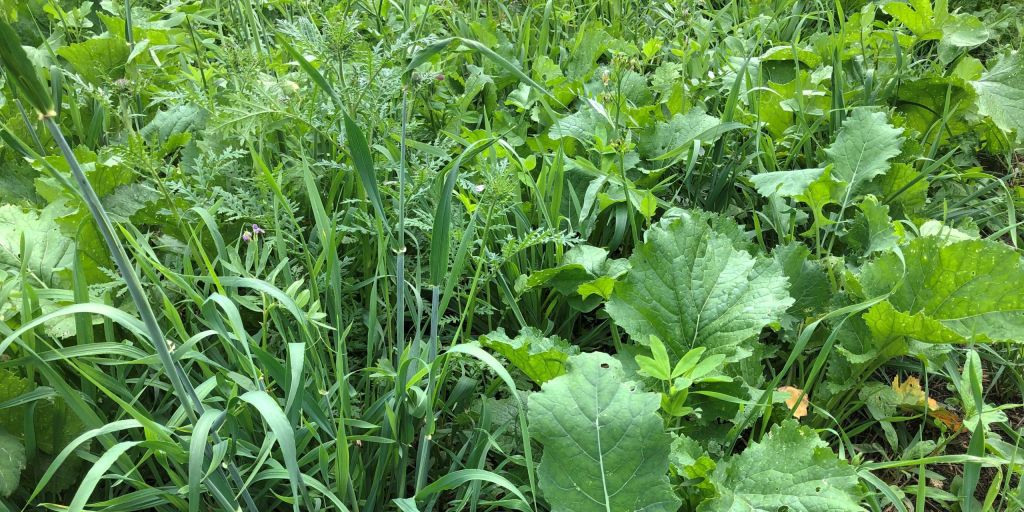
Cover Crops
We regularly use cover crops between rotations of rye and maize to keep green cover on the land, this also vastly improves the soil quality, making it more friable and feeds goodness into the next crop.
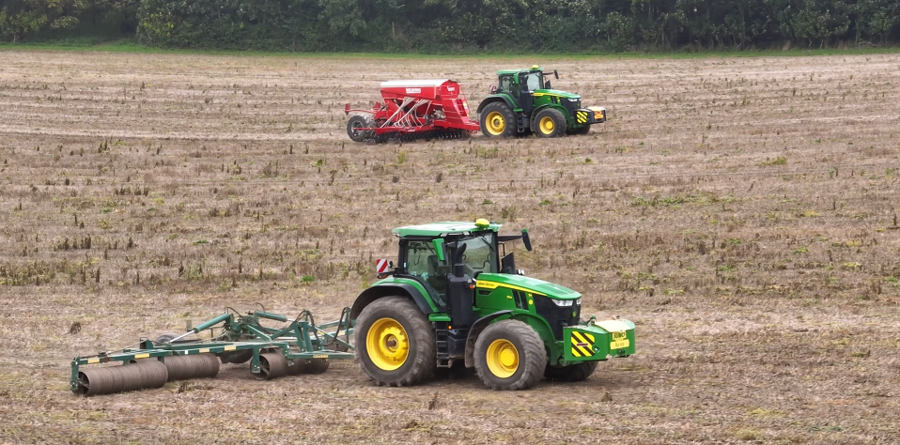
Min Till and Direct Drilling
Since the 1990s, Apsley Farms has been on a mission to reduce tillage, either direct drilling into stubbles or strip tilling for maize crops which disturbs the smallest possible area of soil.
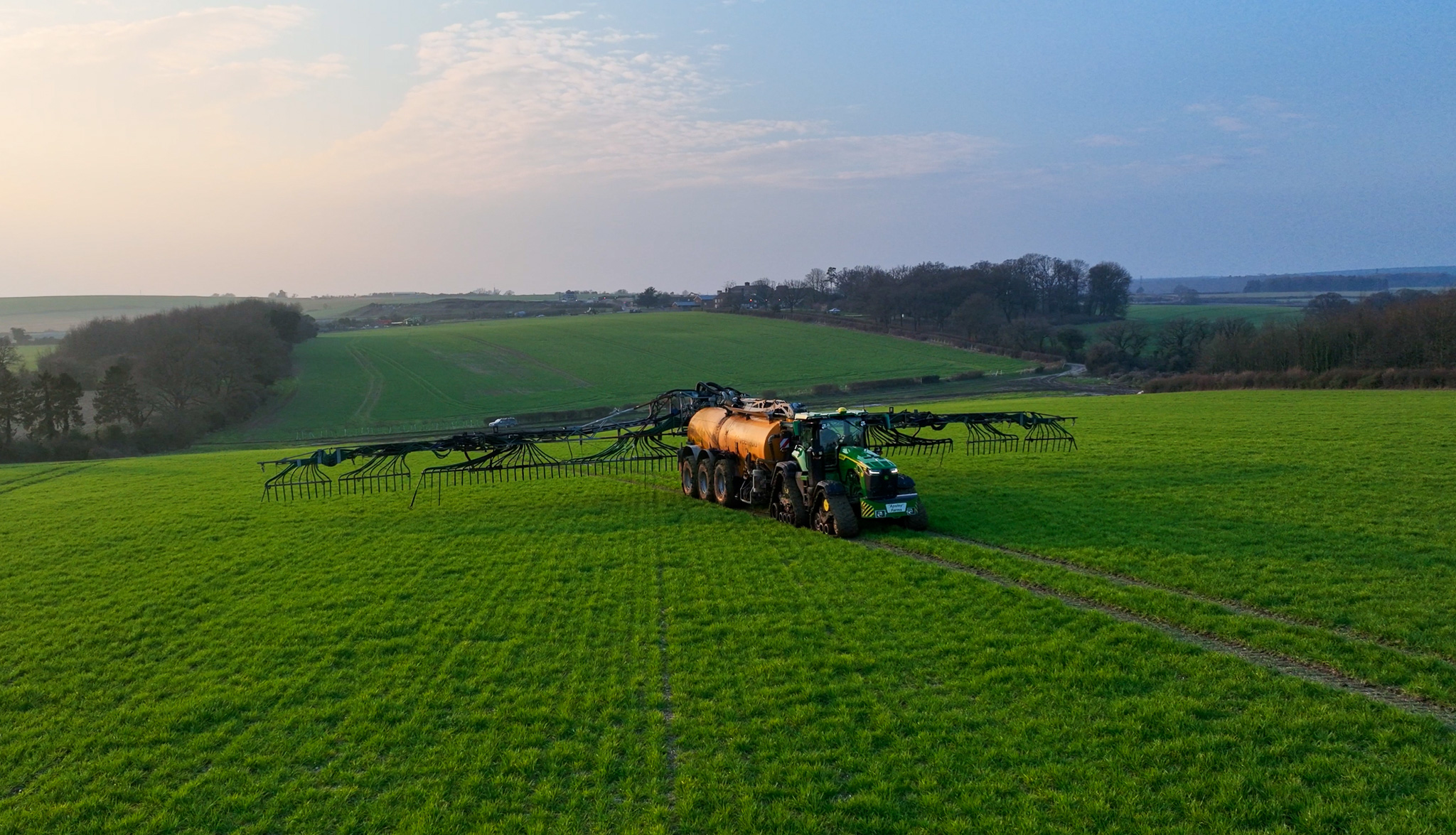
Digestate and Soil Sampling
Our digestate is spread on our own farm, as well as numerous other farms that supply our digesters with crop. This reduces the need for manufactured fertilisers, therefore lowering our crop establishment costs and also reducing the CO2 produced during this process. The environmental benefits have also been apparent since we started using our digestate, with a noticeable return of birds and other wildlife. Healthy soil helps to foster communities of microorganisms, which supports insect life and, therefore, provides food for mammals and birds.
We take field samples to monitor the health of our soils and to keep track of our progress.
